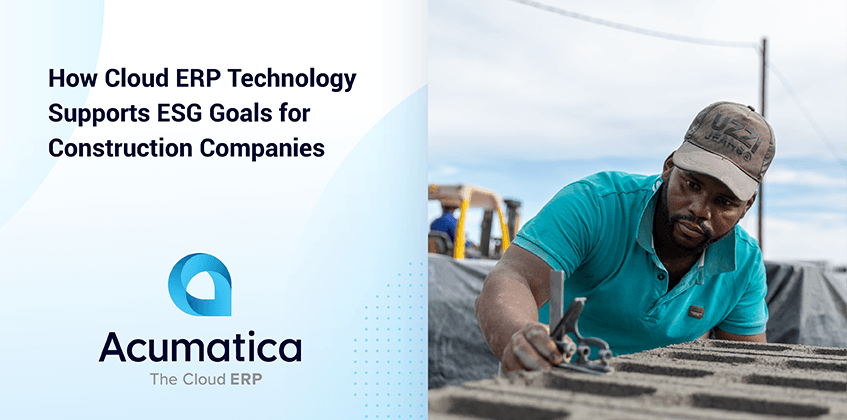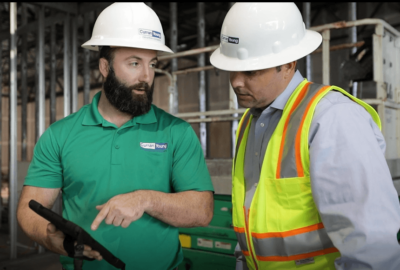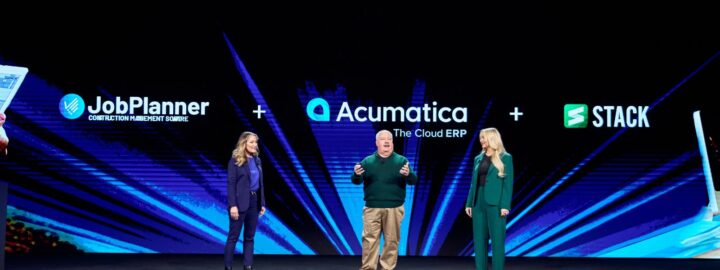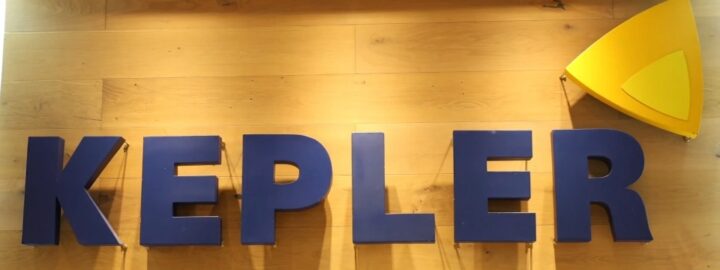
Construction professionals are facing many industry-defining trends, such as the ongoing labor shortage and difficulties attracting, retaining, and supporting qualified workers.
Other top trends in construction include remote or hybrid work and an increased use of technology. Construction companies are using 3D printers to easily build concrete structures, monitoring worksite progress with drones, and implementing cloud ERP construction software to synchronize data and fully connect all team members—whether they’re in the office, out in the field, or at home.
But another emerging trend has also become a priority for many construction firms: Environmental, Social, and Governance (ESG) management.
Today, we’ll examine what ESG frameworks are and how cloud ERP technology can help support construction companies and their ESG goals.
What Is an ESG Framework and How Can Cloud ERP Help?
According to TechTarget, ESG frameworks are “used to assess an organization’s business practices and performance on various sustainability and ethical issues. ESG also provides a way to measure business risks and opportunities in those areas.” ESG initiatives “contribute to broader business sustainability efforts that aim to position companies for long-term success based on responsible corporate management and business strategies.”
So, how do construction companies operating in today’s digital economy incorporate ESG frameworks, and how can cloud ERP technology help them do so successfully? Here are three specific ways.
1. Environmental: Sustainability
Becoming more environmentally conscious and promoting sustainable initiatives is a core ESG goal. Efforts in this area include:
- Using renewable and recyclable materials.
- Improving waste disposal methods.
- Reducing energy, water, and material use.
Many construction firms are recognizing that cloud technology, like a comprehensive cloud-based ERP solution, can help them be cleaner, less electricity-dependent organizations. As Deloitte explains:
[With cloud technology], there’s no need to own and maintain physical hardware, and no need to worry about disposing or recycling either. If you don’t need an onsite server, why go to the trouble of housing and powering one[?] – [G]o cloud.
2. Social: Employee Support and Experience
Supporting workers, ensuring their safety, and prioritizing their wellbeing is a top priority in any industry—but particularly in construction, which requires employees to work long hours in physically demanding conditions. Cloud ERP technology can help construction companies support their employees by:
- Streamlining workflows and providing mobile access to companywide data (e.g., submittals, drawing/photo logs, daily field reports, RFIs, etc.), so workers can quickly access all the information they need to do their jobs efficiently.
- Providing instant connectivity and clear communication between team members, so they can seamlessly collaborate with one another.
- Automating tasks with built-in artificial intelligence (AI) and machine learning (ML), removing stress-inducing manual workarounds and alleviating some of the occupation’s physical demands.
Overall, cloud ERP technology simplifies complex construction requirements, lessens stress levels, and streamlines processes, so employees can work shorter hours—all while providing better overall business outcomes.
3. Governance: Financial Transparency
According to TechTarget, being an ESG-minded organization means focusing on governance factors, such as company leadership and management, ethical business practices, and, among the most important, financial transparency.
Full-service construction and development firm Seacoast Construction puts it well: “Being transparent is the best way to build trust. And, the two go hand in hand in every construction project….Investing in any construction project—commercial or residential—is a major commitment of time and resources. You want the construction firm to care about making your investment a success.”
Financial transparency is a huge part of showing that your construction firm is dedicated to customer success. This involves keeping all lines of communication open and clearly showing that your company can—and does—manage its finances and cash flows responsibly and sustainably.
Cloud ERP technology can help you achieve this goal by providing a host of financial management tools, including:
- General Ledger.
- Accounts Receivable/Payable.
- Cash Management.
- Currency Management.
- Tax Management.
- Fixed Assets.
- Bank Feeds.
- Payroll Management.
These modern accounting applications help construction companies streamline financial operations, automate and customize workflows, achieve continuous close, and, overall, prove to clients that their projects are in capable, trustworthy, financially reliable hands.
Acumatica Can Help Construction Companies with Their ESG Goals
The construction industry’s focus on ESG goals is here to stay, and Acumatica is built to support robust ESG initiatives.
Acumatica’s award-winning cloud ERP solution provides updated, accurate data from a centralized database. It connects businesses end-to-end and streamlines workflows, saving employees precious time and effort. This stress-reducing efficiency is exactly what decision-makers at Dukathole Group were looking for when they chose to implement Acumatica’s modern, user-friendly software. Dukathole—a construction firm whose work largely addresses the “Social” segment of an ESG framework—is playing an essential role in addressing South Africa’s housing crisis.
“Housing is a major problem [in South Africa],” says Dukathole Chief Financial Officer and Operations Manager, Graham Leonard. After implementing Acumatica, Leonard continues, “…the government told us we were the only contractor to meet its deadlines and remain in budget, so rather than building one of every three houses, they want us to build all the houses in the Cape.”
 Canada (English)
Canada (English)
 Colombia
Colombia
 Caribbean and Puerto Rico
Caribbean and Puerto Rico
 Ecuador
Ecuador
 India
India
 Indonesia
Indonesia
 Ireland
Ireland
 Malaysia
Malaysia
 Mexico
Mexico
 Panama
Panama
 Peru
Peru
 Philippines
Philippines
 Singapore
Singapore
 South Africa
South Africa
 Sri Lanka
Sri Lanka
 Thailand
Thailand
 United Kingdom
United Kingdom
 United States
United States














